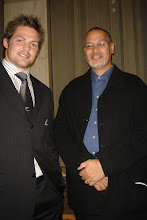 Wherever Europeans settled, whether by conquest or otherwise. they took their culture with them. A mainstay of their culture or identity was religion. The Spaniards, Portuguese and French took Catholicism. The British took Protestantism. By the early 19th century the British were ascendant and were certain that God was on their side. In fact everything pointed to them being the most advanced civilisation that had ever developed.
Wherever Europeans settled, whether by conquest or otherwise. they took their culture with them. A mainstay of their culture or identity was religion. The Spaniards, Portuguese and French took Catholicism. The British took Protestantism. By the early 19th century the British were ascendant and were certain that God was on their side. In fact everything pointed to them being the most advanced civilisation that had ever developed.They wanted to bring the wonders of the civilisation to the backward and needy natives. This would also wanted to expand the Empire, making Britain even greater… richer, more powerful… (No wonder everyone else seemed to dislike them, They probably thought Hubris was an English word).
The Missionaries who followed the explorers wanted to save the souls of the heathen. It was in their destiny to expand the empire, it was also their destiny to spread the word of God.
Samuel Marsden led the (Anglican) Church Missionary Society (CMS) in Sydney. He had a tough reputation and was known as the ‘Flogging Parson”. He lived in Parramatta and had become wealthy on the landholdings he had acquired. He developed a strong bond with many of the Maori who visited Port Jackson, especially Ruatara who spent some time recuperating in his care.
Ruatara was an important chief amongst the Nga Puhi of the Bay of Islands. He hoped to encourage Marsden into bringing Missionaries to his people. However it was not just the word of God that the hoped for.
Ruatara was an important chief amongst the Nga Puhi of the Bay of Islands. He hoped to encourage Marsden into bringing Missionaries to his people. However it was not just the word of God that the hoped for.
Marsden seemed to greatly admire the Maori as a people suited to accepting Christianity.
Preliminary ideas of setting up a mission were put on hold by the burning of the Boyd in Whangaroa harbour. By 1814 Marsden felt more comfortable with the proposal.
It was his hoped that the Missionaries could civilise the Maori. They would first show them the advantages that a civilised culture could offer them. Once this was accepted then they would readily accept the religion that was central to that culture. This explained the inclusion of King and Hall, a rope maker and carpenter. They were accompanied by their families, a sign that they wanted to establish a permanent presence. It was hoped that the families would also keep the missionaries away from the excesses and temptations of Kororareka. I guess 2 out of 3 isn’t to bad.
Preliminary ideas of setting up a mission were put on hold by the burning of the Boyd in Whangaroa harbour. By 1814 Marsden felt more comfortable with the proposal.
It was his hoped that the Missionaries could civilise the Maori. They would first show them the advantages that a civilised culture could offer them. Once this was accepted then they would readily accept the religion that was central to that culture. This explained the inclusion of King and Hall, a rope maker and carpenter. They were accompanied by their families, a sign that they wanted to establish a permanent presence. It was hoped that the families would also keep the missionaries away from the excesses and temptations of Kororareka. I guess 2 out of 3 isn’t to bad.
Civilise then convert.
It seemed simple. The first Mission station was set up on the northern side of the Bay of Islands in an area under the control of Ruatara and his hapu. The site was Rangihoua.
Ruatara died soon afterwards. His place as protector was taken by Hongi Hika. Soon the Mission moved to Kerikeri and Paihia, close enough to see Kororareka, not so close it could be contaminated by the Whalers antics.
Hika wanted the Missionaries for what they could give him. He never converted to Christianity. Although Marsden came to New Zealand he never stayed. Leadership of the Mission fell to Thomas Kendall who never really fired as a leader. He lacked the ability to inspire and was unable to shake the shadow cast by Hika. Belich describes Kendall as Hika’s vassal.
Maori were disappointed by the Missionaries. They wanted traders who could provide a steady stream of material especially muskets. When Kendall followed Marsden’s direction not to trade in Muskets their mana really diminished.
From a letter to Kendall from Marsden, 1819
"I found that you had fallen into that accursed traffic with muskets and powder again, notwithstanding all the resolutions that had been passed against it when I was with you in August last. When I considered that the missionaries were furnishing the instruments of death to these poor savages by supplying them with muskets and powder, I could not but feel the greatest indignation at such a thought. The argument generally urged has been that neither timber nor pork could be bought from the natives without muskets and powder. This I do not credit."
It was not uncommon for their settlements to be ransacked by passing by Maori from other Nga Puhi hapu. Physical threats were made but rarely carried out, the Missionaries were never equals in their eyes.





No comments:
Post a Comment